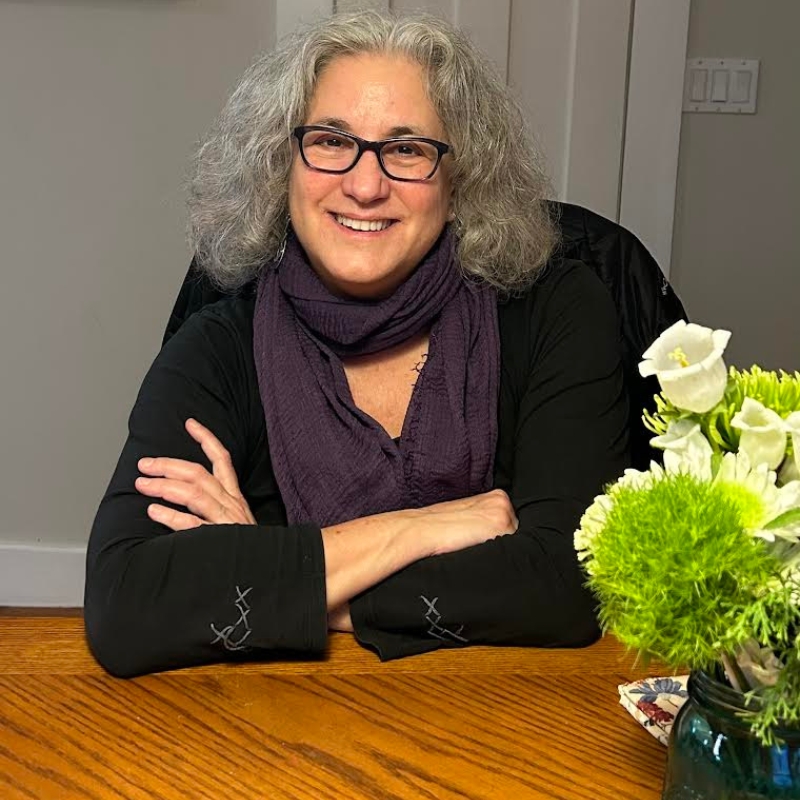Parshat Beha’alotecha begins with God saying to Moses: “Speak to Aaron and say to him: When you light (beha’alotecha) the lamps, the seven lamps shall make light in front of the menorah.” (Numbers 8:2)
Our sages went to great lengths to unpack this sentence.
First, they wondered: Why use the verb root ayin-lamed-hey — which is the same as the word aliyah (as in taking an aliyah during the Torah service or making aliyah to Israel), which means “to rise” — instead of the verb “to kindle” (dalet lamed kuf) or the verb “to light” (aleph-vav-resh)?
Perhaps, they mused, the lamps of the menorah are like the seven kinds of Jewish souls, each of whom must be fully empowered and capable of maintaining their own light, not kindled by another every day, or each time they act. Aaron’s task in making our light glow was to bring us permanently into a higher realm, where we could light our own fire, not just give us a little heat in the moment.
Find more resources for Beha’alotecha
Empowering others to be all they can be is a passion of mine. And yet, I see even more wisdom in this word choice. What else does that verb ayin-lamed-hey mean? It also means “sacrifice,” like the olah offering, and even more interestingly, it can mean “transform.”
Perhaps in this act of lighting, Aaron is causing parts of us to be sacrificed, allowing what remains to be refined and beautifully shaped for our life’s purpose. We are like pottery in a kiln, where intense heat (over 1,000 degrees!) evaporates water, burns away organic matter, and changes the crystalline structure of the clay. The parts of us that were once soft, vulnerable, and fragile can become strong and durable, leaving an impact that lasts for centuries, much like the pottery archeologists dig up on the daily.
Perhaps you have had this kind of transformational moment? I had this kind of experience once while performing civil disobedience. I was getting arrested in front of ICE Headquarters in Portland, OR, with two other clergy. We were demanding the release of about 50 asylum seekers who had entered the country legally and were put in prison. We stood illegally in front of the entry gate to the facility. While we sang and speechified, we were waiting for agents to tell us we had to leave, at which point we all sat down. As the first agent approached me, told me to get up, and put handcuffs on me, a friend and colleague shouted from the crowd assembled, “Solidarity forever!” In that moment, all boundaries evaporated. I was one with the crowd. I was one with the asylum seekers. I was even one with the ICE agents. All of us merged into the mind of Yah, attuning to the call of justice and freedom. And I was never the same. (And yes, the asylum seekers were released after a month of clergy arrests. Oregon was the first state in the country to do so.)
Just as our ancestor Abraham was purified and honed inside Nimrod’s midrashic furnace when he challenged idol worship (Genesis Rabbah 38:11), we too can transform ourselves, challenge dominant norms of the day, and speak truth to power.
Find more commentaries on social justice, leadership, and philosophy.
What if we read this Torah as inviting us to enlighten, hone, and activate both ourselves and every Jew we interact with to both transform and rise up?
What if the Torah is saying that if ever there was a time for us to act like members of a nation of priests, that moment is now?
Not just make a few calls to our elected representatives during these catastrophic times. Not just send a few donations to co-existence organizations in Israel/Palestine, fighting Netanyahu with every fiber of our being. Not just write artfully worded sermons, Facebook posts, and op-eds.
And in this transformation, what if we find that our most important work is actually under the radar, because protecting the most vulnerable requires it? What if this transformation asks us to decenter ourselves and build resilient relationships with people we don’t yet know, so we can help one another out when we are under siege? What if our most important work is saving democracy at our local town or city hall, and not being the headline speaker at a national rally?
May we take every opportunity to be like Aaron, lighting every Jew up to rise up. May we take every opportunity to be like Abraham, acting boldly without shame or reluctance as we challenge empire, protect the vulnerable, grieve horrific harm, and build the future we seek.
May each and every one of us rise up into the most courageous and committed versions of ourselves that we can be.
Currently a freelance rabbi and justice consultant in Amherst, MA, Rabbi Debra Kolodny (they/them) has been bringing their spiritual activism to worker, immigrant, women’s, and LGBTQI+ rights, as well as racial and economic justice since 1980. Their passions are ending fascism and white nationalism, transcending the binary to liberate and bring sustainable peace to Israel and Palestine, saving our awesome planet, swimming, ecstatic dance, and exciting a loving, compassionate, Spirit-drenched Jewish community.

